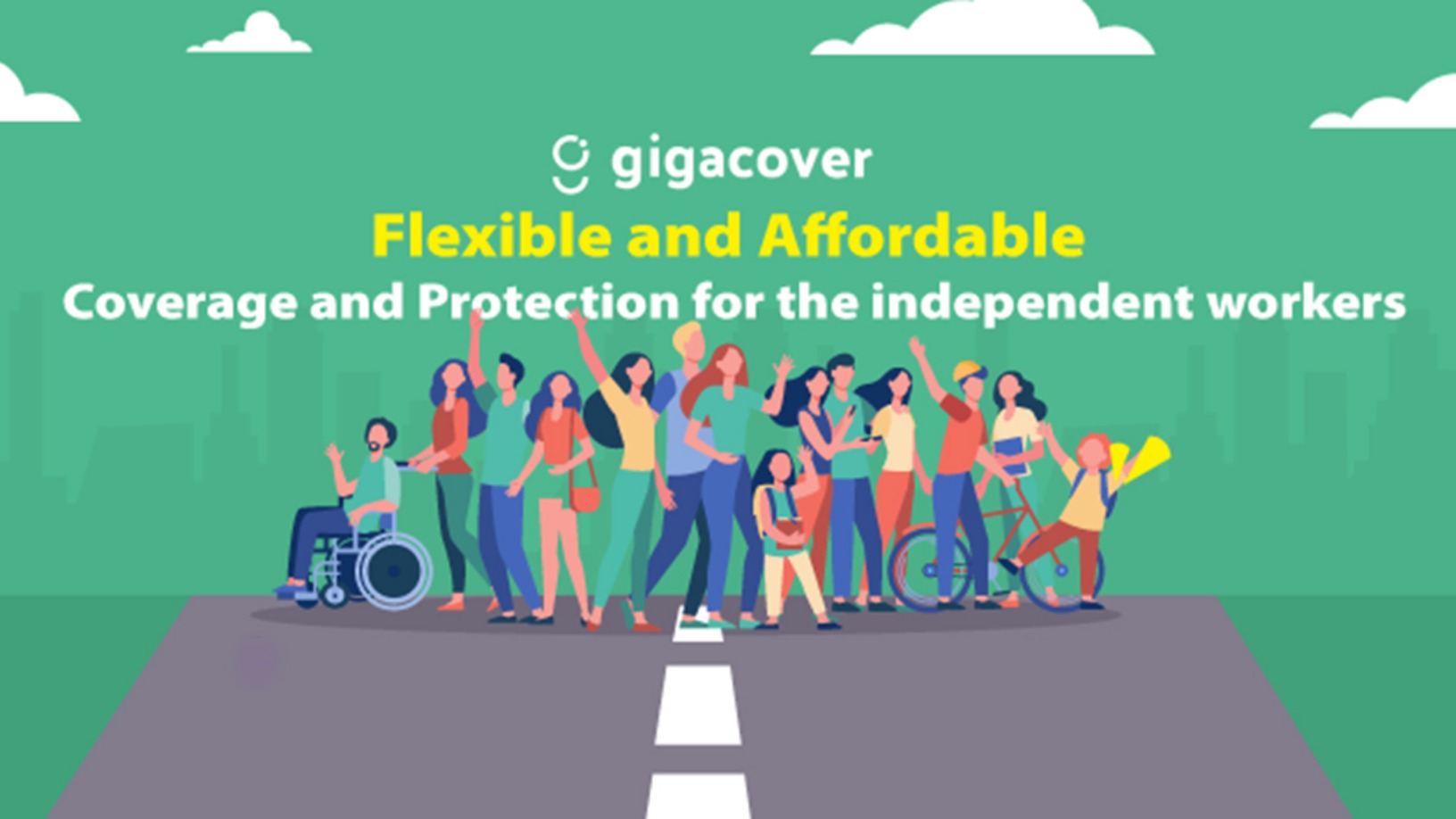Self-employed workers, especially low-income gig workers, often find it difficult to access financial services, such as loans and insurance. Singaporean fintech startup Gigacover wants to ensure these workers can enjoy the same benefits as full-time employees through its innovative subscription-based coverage system.
By paying a small monthly premium, self-employed workers can enjoy subsidized healthcare services, personal accident and critical illness insurance, and income protection if they are hospitalized and cannot work for extended periods. The company currently covers 100,000 workers for gig worker employers like Gojek, Foodpanda and Lalamove in Singapore, Indonesia and the Philippines.
Gigacover CEO and co-founder Amerson Lin told CompassList that he founded the company after experiencing the difficulties of being self-employed. “I could not apply for a credit card because the banks wanted proof of stable income for 12 months, even though the rest of my credit history was good,” Amerson said, recalling his brief stint as a freelance software developer.
Later on, as more gig work platforms like Gojek and Grab gained popularity, Lin learned how their drivers could not easily get loans or insurance coverage, prompting him to establish Gigacover in 2017 with co-founder Cheng Xun (CX) Chua to provide income protection for gig workers who were hospitalized. Soon, the company began collaborating with banks and insurers like AXA and Etiqa to provide healthcare insurance, loans, earnings advance and other financial services.
Income protection
Gigacover started out focusing on closing the gap in protection between salaried and self-employed workers. In Singapore, for example, private or public sector employees get 14 days of paid leave and 60 days of hospitalization leave every year, during which they continue to earn a salary. Self-employed individuals do not have such protections.
I could not apply for a credit card because the banks wanted proof of stable income for 12 months, even though the rest of my credit history was good
“If you’re a ride-hailing driver and you get hospitalized for two months, you can’t earn money in the meantime. If you’re a real estate agent, you’re going to lose your deals in that period,” Lin said. Gigacover’s income protection product aims to “at least help you with your hospitalization bills.” Depending on the company’s arrangement with Gigacover, the worker either pays a small monthly premium, or the company makes the payments.
After finding some success in Singapore, including a partnership with Gojek to provide income protection and insurance coverage for drivers, Gigacover expanded to Indonesia, but as it began establishing the business in the country, Covid-19 struck, and many gig workers came under financial pressure. This led Gigacover to add other financial products to its portfolio, including an earnings advance service similar to wage access services for salaried employees.
“If you have a sales contract that pays you commissions, or if you have your earnings locked in a platform that can only pay you every 30 or 60 days, we can give you the money now, and we collect from these platforms at the payout date,” Lin said.
B2C in two years

Lin believes that while banks and insurers are seeing the value of serving self-employed clients and supporting financial inclusion efforts, they are not set up to do it on their own. This is where Gigacover steps in, not as an insurance company or a lender, but as an intermediary that helps such companies find more clients and manage the risks of serving these clients.
“Our value proposition is providing a way for these companies to deploy excess capital to a new segment at a relatively lower risk, and a sufficient volume and return on investment.”
To manage these risks, Gigacover collects and analyses various types of data. “By providing both insurance and financial services, we get a lot of valuable data that we can use to flag signs of fraud,” Lin said. “We know information like the type of job they have, the number of dependents they have, health history, as well as their financial needs and how they use the money."
Gigacover has quickly scaled up its coverage to 100,000 workers through B2B partnerships, but with this approach, it has not reached freelancers and other informal workers in all segments. “Soon, we will enable any worker to sign up on their own and pay the premium to enjoy our services,” said Lin, who plans to launch this service within the next two years.
Unaffected by the pandemic
Lin said that premiums paid during the Covid-19 pandemic have fallen on average from S$25–S$15, and contract sizes are smaller, but client retention remains high at 95%. He added that awareness and knowledge of insurance products among clients have been increasing.
“Early in the pandemic, one of our partners decided to distribute a free Covid-19 coverage product to their gig workers. We actually had some users write to us asking about it, saying they don’t want the coverage because they were afraid it would jinx them,” Lin said. However, such incidents became rare as the pandemic lingered as people learned more about how insurance products worked.
Gigacover last raised funds in June 2019, when it received an undisclosed amount from Vectr Fintech Partners, Quest Venture Partners and Alto Partners. Lin said Gigacover has enough funds to last through the pandemic, and he is positive about economic prospects as economies are “getting used to operating in a pandemic, and business activity is climbing back up.”
While Lin did not have a specific timeline or amount in mind yet, he said that the company would soon raise funds to support its continued growth. “We will be pushing our sales team to be more aggressive, as we need to get our name out there. I also want to grow our data team to develop stronger financial models and understand risks better,” Lin said.
Gigacover will also use any funds raised to expand its market reach in the Philippines, its newest market, and other Southeast Asian countries like Vietnam and Malaysia.
“There are more than 150m self-employed workers in Southeast Asia, and roughly half of them are underbanked. That is easily a $30–$40bn market opportunity every year,” Lin said. “We hope to serve around 25% of [self-employed workers] by 2026.”











